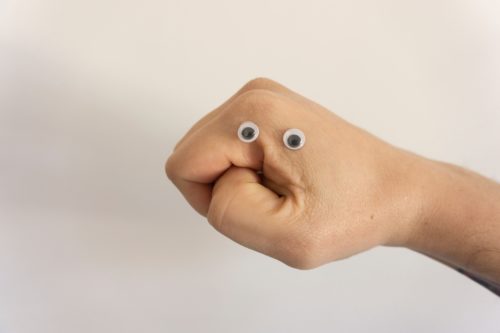 The clinician involved in diagnosing you should outline how you should care for your eye whilst it cannot fully close or blink. If problems with eye closure and blink persist beyond three weeks you should ask your GP to refer you to an eye specialist.
The clinician involved in diagnosing you should outline how you should care for your eye whilst it cannot fully close or blink. If problems with eye closure and blink persist beyond three weeks you should ask your GP to refer you to an eye specialist.
Eye drops
Use preservative-free eye drops to keep your eye lubricated. There is a wide range of options so consult with your pharmacist. If your doctor is prescribing eye drops, ask him/her to make sure they are preservative-free. This is because preservatives themselves when used in eye drops for more than a few weeks, can break down the tear film. It is important that you continue to use your eye drops regularly even if your eye is watering. Remember a watery eye is a sign of a dry eye so keep using the eye drops.
When sleeping
Make sure your eye is closed for sleeping. Close your eye manually with your finger and tape it closed with special tape which your doctor or pharmacist can prescribe (Transpore Tape). Alternatively, wearing a contoured sleep mask at night might help protect your eye. There are also special ointments that are prescribed specifically for the night-time. They can be quite thick which is why they are not suitable for daytime use.
Outdoors
- Wear sunglasses at all times when you go outside because it will be difficult to blink away dust and dirt. It will also be harder to squint against sunlight. Wearing sunglasses in all weathers will protect the eye from wind, sun and other environmental factors, for example, fan heaters/de-misters in cars. Wraparound sunglasses are likely to be more effective, as they will protect the eyes from the side as well as the front. For windy days plain lens glasses might be a good option.
- Moisture chamber glasses are another alternative, as they slow down the evaporation of tears and protect the eyes from sun glare.
Indoors and outside
- Minimise your exposure to air conditioning and if possible, to central heating, as they dry the environment and potentially make your symptoms of dry eye worse. A humidifier will help increase the moisture content of the air.
- When working at the computer you may find that your eye becomes increasingly sore or irritated. Try blinking your eye with the back of your finger every few minutes. Just gently push the eyelid closed with your finger a couple of times, as this can help relieve the feeling of dryness. Make sure you have used your eye drops as prescribed. Taking frequent breaks from the computer screen will also help.
- Wearing a moisture chamber is an efficient way of minimising the drying effects of air conditioning and central heating, and reducing irritation from pollen and dust.
Stay hydrated
Drink plenty of water to keep yourself hydrated.
Avoid irritants
Wearing and removing makeup may irritate the eyes. It may help to have makeup-free days to give your eyes a rest.
Keep your eyes moist
Maximise your body’s own ability to keep the eyes moist. We have tiny glands in our eyelids called Meibomian glands which secrete a special oil into our tears. This oil can become too thick and so blocks the gland preventing oil being released into the tears. Tears which lack this special oil tend to evaporate more quickly and cause the eyes to become dry. This is called Meibomian Gland Dysfunction and is a common disorder causing dry eyes especially as we get older.
To prevent the Meibomian glands from becoming blocked, apply a warm compress over closed eyes just for a few minutes every day. Using a wheat bag which is heated in the microwave will act as a good compress. The skin around the eye is especially delicate so take care not to overheat the wheat bag and always follow the instructions that come with the product. Alternatively, you could just apply a warm flannel over your eyes for several minutes.
Seek professional help
- Redness, soreness, irritation, pain or discharge from your eye are all signs that something is wrong, and you will need medical help and advice to manage these symptoms.
- If you are concerned about your eye health contact your GP or go to your local eye hospital casualty.
- If in doubt, visit your local optician to have your eyes tested. This will show any potential problems and they can advise or refer you for further help and investigations.
Read more
Photo by Franco Antonio Giovanella on Unsplash
